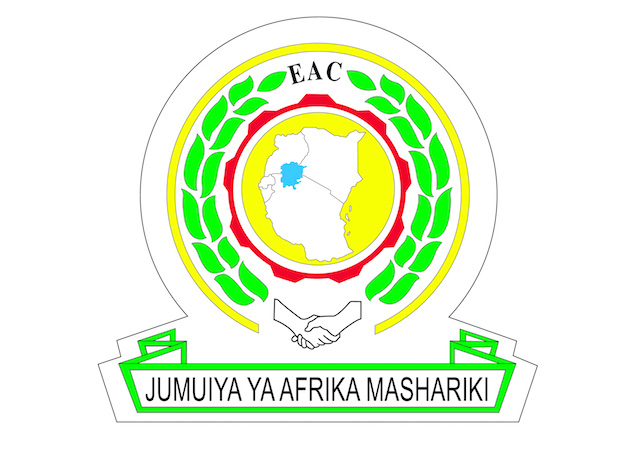
EAC Partner States to largely retain their national sovereignty under the proposed EAC Political Confederation
East African Community Secretariat, Arusha, Tanzania, 24th April, 2021: East African Community Partner States shall largely retain their national sovereignty under the proposed EAC Political Confederation, this is according to Justice Benjamin Odoki, the Chairperson of the Committee of Experts tasked with drafting a model constitution for the confederation.
Justice Odoki further disclosed that the Political Confederation would ideally be vertical in that it would deal directly with Partner States rather than EAC citizens.
He further said that constituent states of the Confederation would have the freedom to join and/or withdraw from the arrangement as they so wished being sovereign states.
“The Confederal authority will, however, have the right to suspend or expel a member state that violates the confederal constitution,” said Justice Odoki, who is also a former Chief Justice of the Republic of Uganda.
Outlining the features of a political confederation as opposed to a political federation, Justice Odoki said that the operations of the confederation would be highly dependent on the goodwill of the constituent states.
The Chairperson was, however, clear that the political confederation was a transitional model to the Political Federation that is the fourth and ultimate stage in the EAC integration process.
Justice Odoki was addressing participants in Mbarara, western Uganda during the ongoing national consultations for the drafting of the constitution for the proposed EAC Political Confederation.
The retired CJ urged the participants to tell the committee of experts how much sovereignty they would prefer the national governments to cede to the proposed political confederation.
“Under a confederal system, the decision-making process is based on consensus or unanimity. The member states do not lose their sovereignty, that is, the supreme power of states to manage their affairs,” said the retired CJ, adding that there would be no creation of a new state or some centralised authority.
Justice Odoki informed the participants that the team of experts was appointed by the Summit of EAC Heads of State in 2018 to carry out consultations and propose a model constitution for the EAC confederation.
The Chairperson further said the confederation was a slight change of policy by the Community which had been occasioned by many factors among them fears of constitutional differences among Partner States, varied levels of economic development and mixed progress in the implementation of the Customs Union, Common Market and Monetary Union.
“Only the first two stages of the integration have been implemented. There was a feeling that we need to move slowly towards the Political Federation so that the countries can walk together. The important thing that we need to bear in mind is that the confederation is a transitional stage to the federation,” he said.
He said that the team’s Terms of Reference were to study confederations across the world, both the previous and present, and establish why some collapsed and why some succeeded.
Participants at Mbarara expressed diverse opinions on what kind of a Political Confederation they would want with some saying that it was a good idea that needs to be fast-tracked while others were of the view that the region should move towards a confederation gradually.
Yet some of were of the view that the Community should endeavour to fully implement the Customs Union, Common Market and Monetary Union before putting into place the confederation.
The general consensus among the participants, however, was that political confederation is good for the region.
The 14-day consultations in Uganda will see the team of constitutional experts for Drafting the EAC Political Federation Constitution hold consultations with civil society, local leaders, opinion leaders and the business community among other stakeholders to seek their views on what kind of a Political Confederation they would desire for the EAC.
Apart from Kabale and Mbarara, the team of experts will hold consultations in Mbale, Gulu, Arua and the capital city Kampala.
NOTES FOR EDITORS:
The Political Federation is the ultimate pillar in the EAC integration process, being preceded by the Customs Union, Common Market and Monetary Union in that order.
The Summit of EAC Heads of State in May 2017 adopted a Political Confederation as the transitional model to the Political Federation. The Team of Experts was appointed by the Summit in February 2018 and is chaired by Justice Benjamin Odoki, retired Chief Justice of Uganda. Justice Odoki is deputised by Busia (Kenya) Senator Amos Wako, who is also a former Kenyan Attorney General.
The objectives of the National Consultations for the EAC Political Confederation are threefold:
- Enhance awareness on the ongoing Constitution-making process for transforming the EAC into a Political Confederation;
- Obtain stakeholders’ views on their interests and key issues to inform the drafting of model Confederation and subsequently a Confederal Constitution in line with the principle of people-centred regional community, and;
- Prepare the public in general to give their inputs into the draft Constitution once it will be drafted.
For more information, please contact:
Simon Peter Owaka
Senior Public Relations Officer
Corporate Communications and Public Affairs Department
EAC Secretariat
Arusha, Tanzania
Tel: +255 768 552087
Email: sowaka [at] eachq.org
About the East African Community Secretariat:
The East African Community (EAC) is a regional intergovernmental organisation of six Partner States, comprising Burundi, Kenya, Rwanda, South Sudan, Tanzania and Uganda, with its headquarters in Arusha, Tanzania.
The EAC Secretariat is ISO 9001: 2015 Certified
Tags: Political Federation, #EAConfederation, Political Confederation
